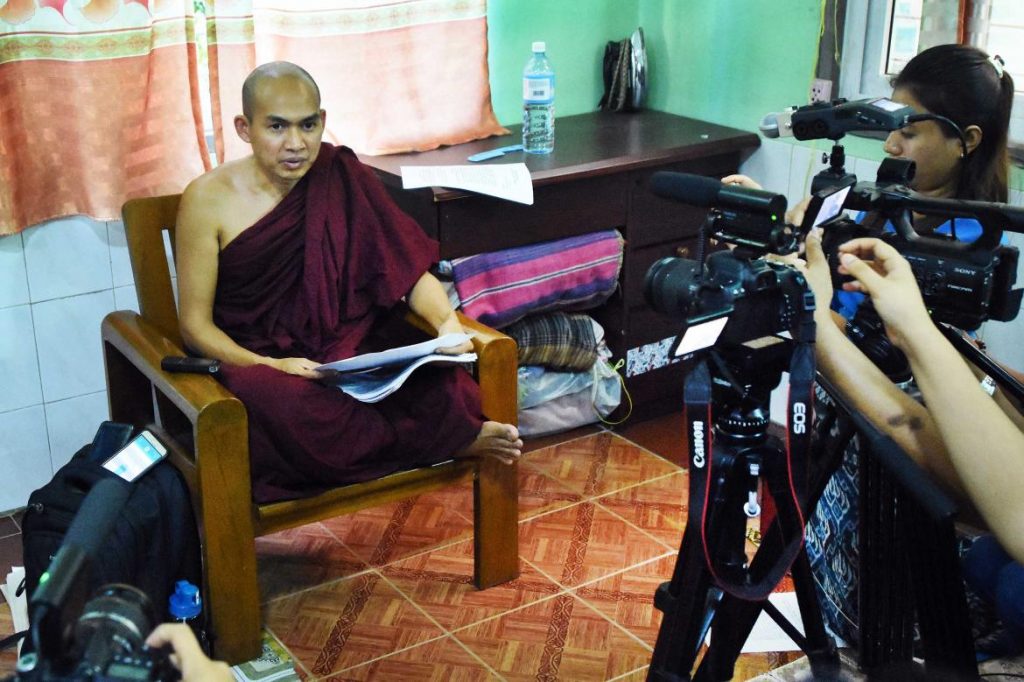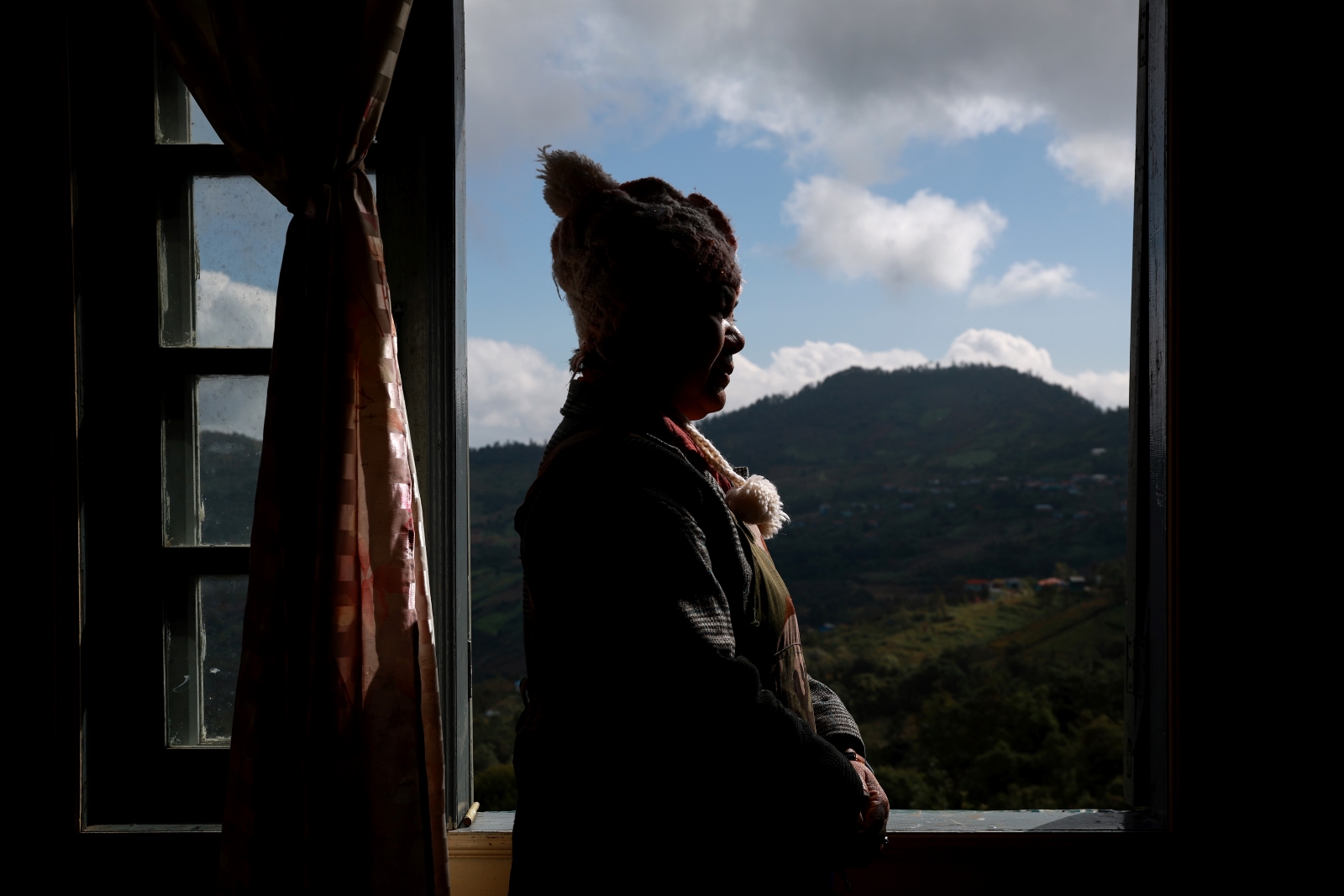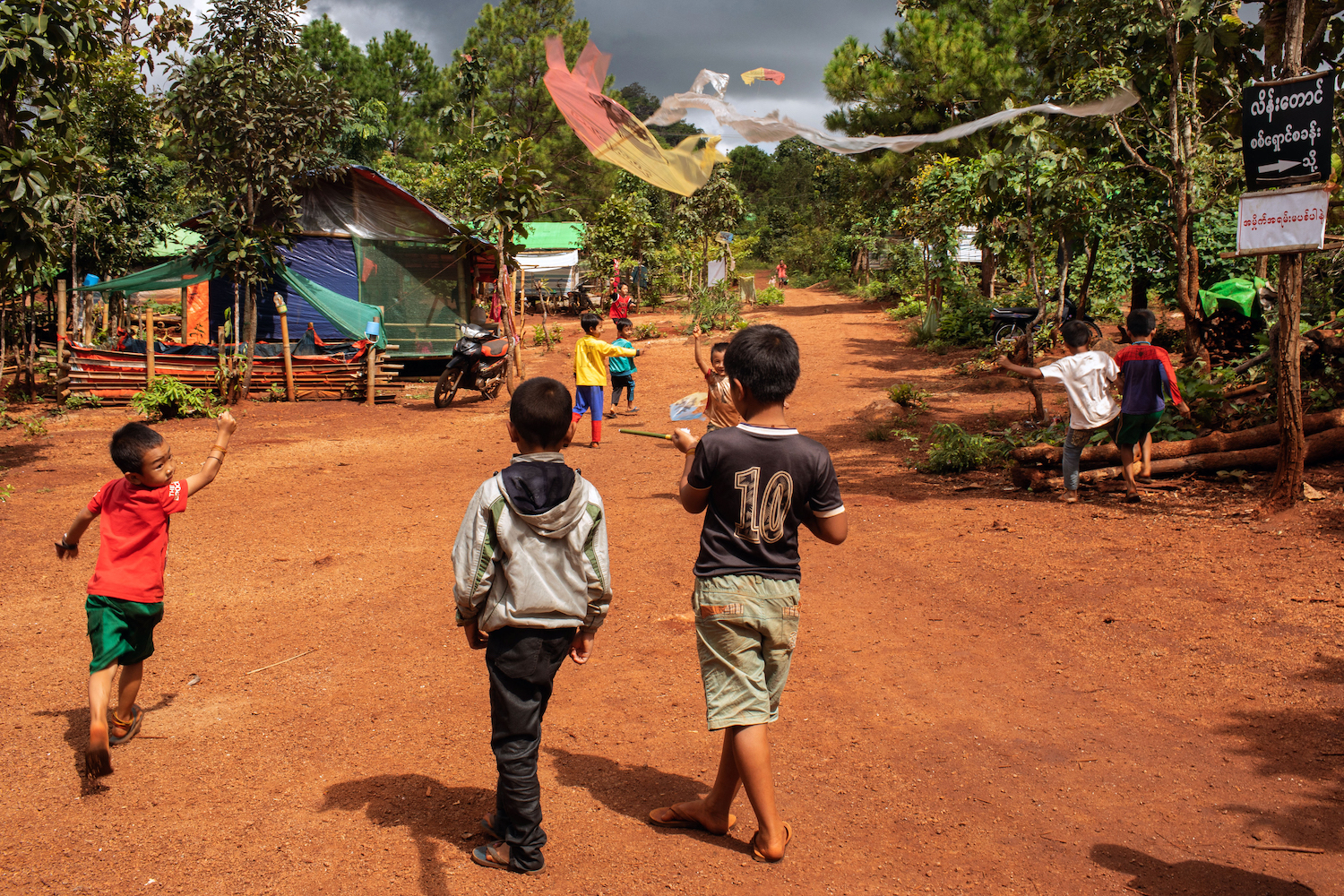In rare criticism from another monk, the controversial U Wirathu has been accused of bringing Buddhism into disrepute.
By HTUN KHAING | FRONTIER
THE ACTIVITIES of U Wirathu threaten to create international misunderstanding about Buddhism and the monkhood in Myanmar, an outspoken critic of the controversial nationalist monk has warned.
The rare criticism of Wirathu from another monk came at a news conference at a monastery in Yangon’s Thingangyun Township on February 25.
Ashin Issariya, a leader of the monk-led protests in 2007 called the Saffron Revolution who is well known by his pen name Min Thon Nya (“King Zero”), condemned Wirathu for speaking in support of suspected murderers.
“In the code of conduct for Buddhist monks, killing cannot be supported,” Issariya said, referring to videos distributed by Wirathu in which he expresses support for suspects on trial over the assassination of prominent lawyer, U Ko Ni, on January 29, 2017.
Support more independent journalism like this. Sign up to be a Frontier member.
Wirathu had even described himself as the “Kyi Lin Sayadaw” to show support for the alleged gunman, U Kyi Lin, Issariya said.
Ko Ni was shot in the head outside Yangon International Airport while cradling his grandson after returning from an event in Indonesia.
Issariya said that in his sermons, Wirathu had likened those arrested over Ko Ni’s killing to Buddhas-to-be.
“Likening murderers to a Buddha-to-be is an insult to Buddhism,” Issariya said, in comments that suggest widening divisions in the sangha over the activities of nationalist monks.
The 227 rules in the code of conduct for Theravada Buddhist monks include a prohibition on the use of intemperate speech.
“The sermons that U Wirathu was preaching are destroying Buddhism – they are not respecting the teachings of the Lord Buddha,” Issaryia said.
“Because of admiration of U Wirathu, there are many young monks who maintain that a monk can use intemperate language and support and praise murderers and agitate against those who disagree with them,” he said.
“If more monks maintain that they can use abusive language and support murderers, it would damage the country.”
Issariya said that if Wirathu’s activities were regarded as having the consent of all Buddhist monks in Myanmar, it could create misunderstanding in the international community about the sangha in Myanmar. It could also cause misunderstanding among people of other faiths.
He urged more monks to speak out and explain that Wirathu’s activities do not represent Buddhism.
“As a Buddhist monk, and as a citizen, he [Wirathu] has a responsibility to speak the truth,” Issariya said when asked why he was criticizing Wirathu, despite receiving threats.
Issariya had planned to give a news conference in downtown Yangon on February 25 but it had to be abandoned at the last minute when it was disrupted by dozens of nationalist monks. Speaking in Thingangyun later that day, he said that he had received threats by phone from monks wanted by the authorities for hate-speech against Muslims and an internet threat to destroy his monastery in Kayin State.
Issariya said that when Wirathu claims that he is working for “the national cause” he is misleading the people.
“When U Wirathu says he is working to protect race and religion, he is misleading the people. If you want to protect Buddhism, you must abide by the rules of conduct set by the Lord Buddha,” he said.
Issariya asked why Wirathu had been able to continue preaching when he had been banned from delivering public sermons until March 9, under a decision by the State Sangha Maha Nayaka Committee, the supreme body representing the monkhood, on March 10, 2017.
The committee, known by its Myanmar acronym as Ma Ha Na, said it was imposing the year-long ban because Wirathu had “repeatedly delivered hate speech against religions to cause communal strife and hinder efforts to uphold the rule of law”.







